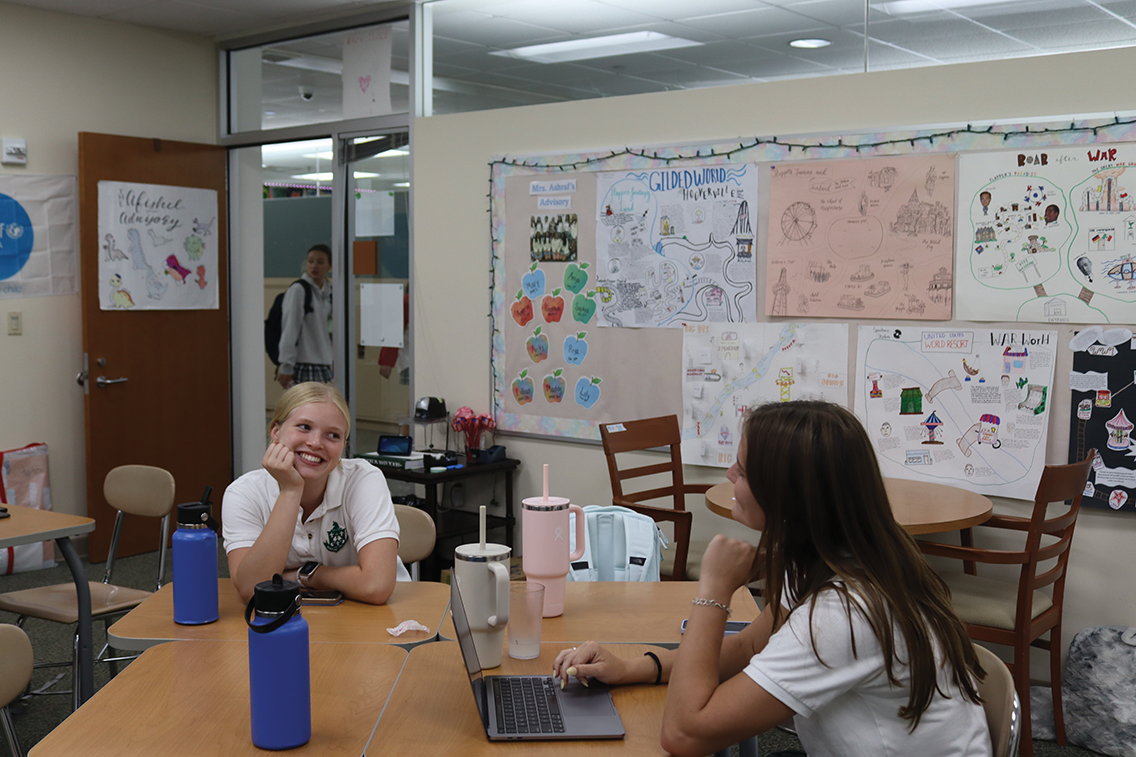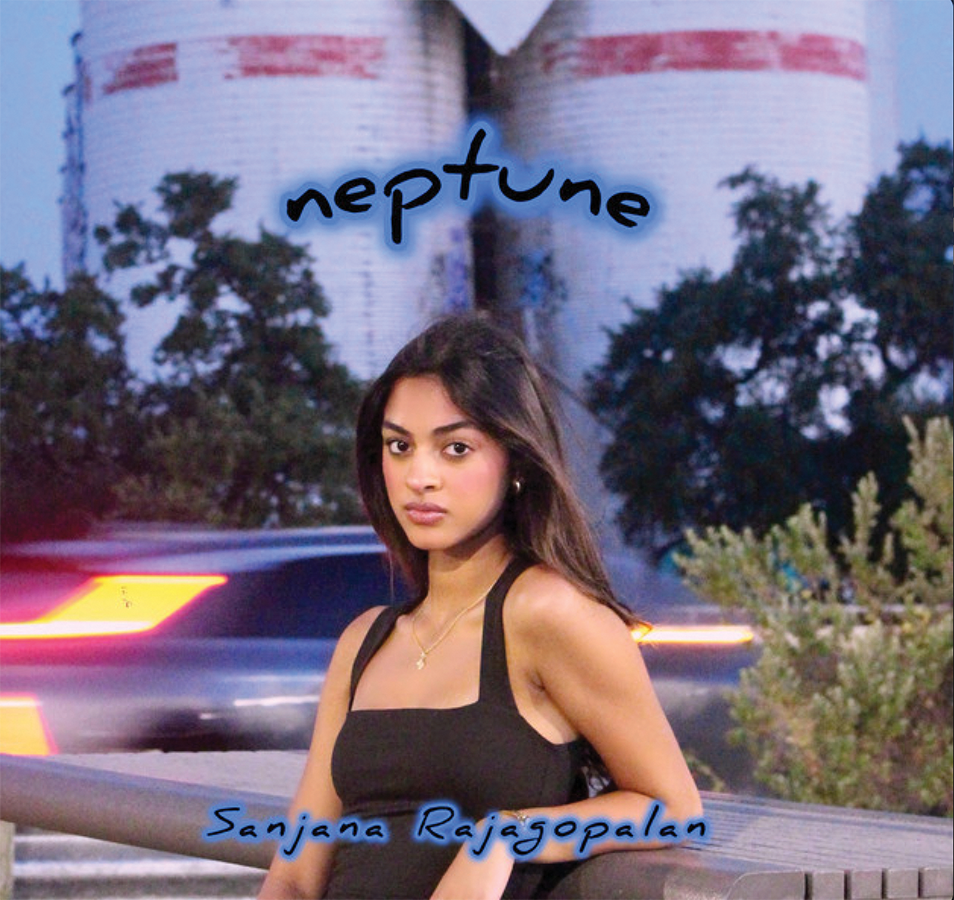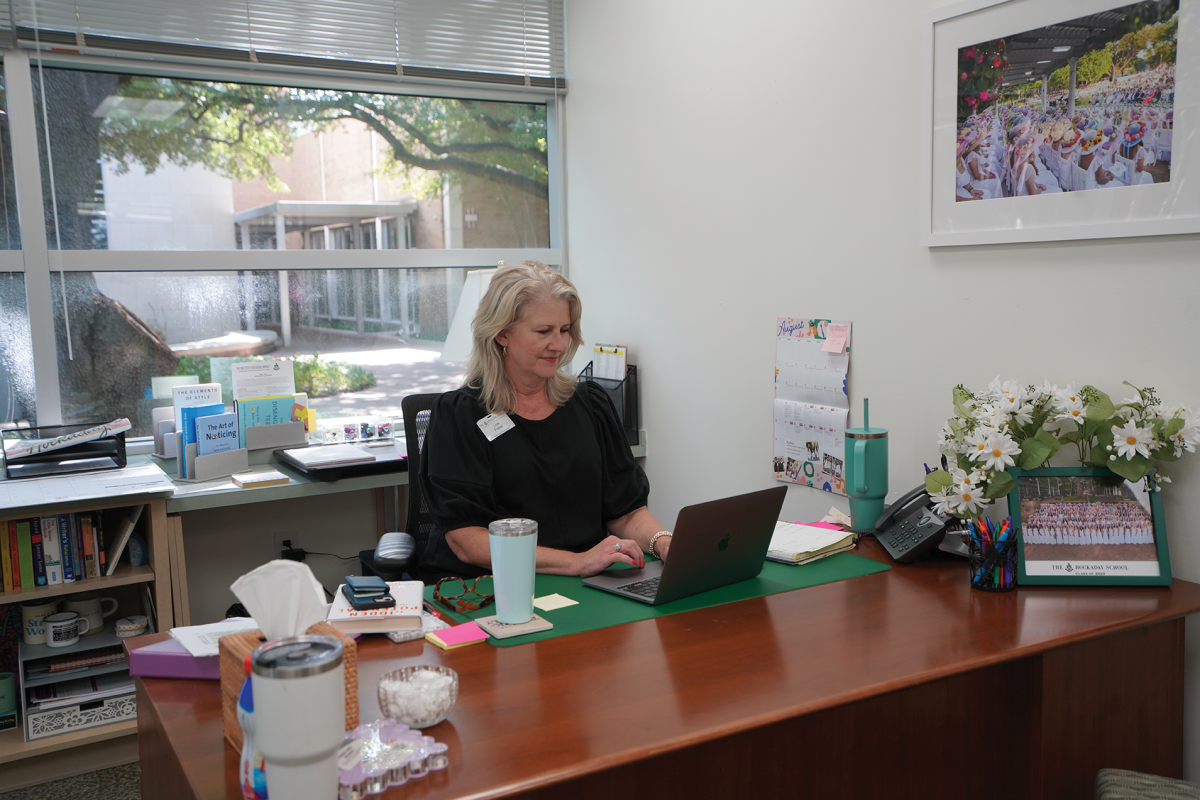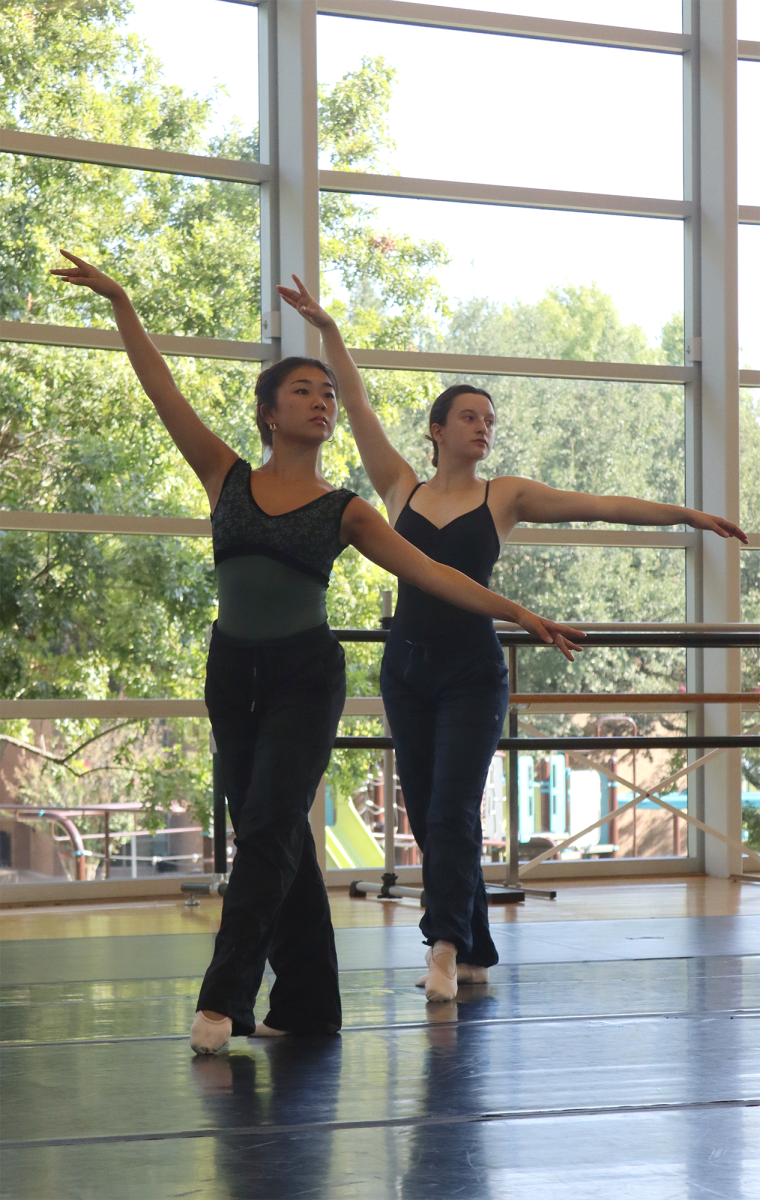School is back in session, and Upper School students are conscientiously studying for their rst tests and quizzes. Along with their ash- cards, Quizlets and notes, one other study tool might prove just as effective: study playlists.
Whether it is a casual few songs between subjects or a strict playlist that a student swears by to study better, music is ubiquitous throughout the learning environment. To sophomore Natalie Lanners, a student who needs to have music playing while she is studying, music is essential while doing schoolwork. “I feel like I’m missing something if I don’t have music playing.”
In a survey of 190 Hockaday upper schoolers, 72 percent of students liked music with lyrics and 51 per- cent liked classical music with instrumentals. Most students did not like white noise when they studied — 75 percent of students were actually against it — while 67 percent of students disliked nature sounds.
But girls don’t listen to the same kinds of music for every class they study for.
“It depends on the subject,” Lanners said. “For math, I listen to something that pumps me up, like rap. For english and history, I listen to classical.”
Stanford University professor, Clifford Nass has done extensive research on the effects of music on the brain and what types of music are the best for productive work.
“Music with lyrics is very likely to have a problematic effect when you’re writing or reading, probably less of an effect on math, if you’re not using the language parts of your brain,” Nass said.
Nick Perham and Joanne Vizard, scientists at the University of Wales Institute Cardi in the UK, have studied the science of background music on the brain. In the journal Applied Cognitive Psychology the two scientists published a study that said that when it comes to the types of music one should listen to, music that one likes but doesn’t know, is better for concentration than music that you like, but already know. Perham and Vizard also wrote that listening to songs without sudden tempo shifts or distracting chord changes.
Although fast- paced music may be good for some activities, a study led by University of Toronto researcher Glenn Schellenberg found that fast, up-tempo music hurts our ability to concentrate or grasp new ideas. The scientist also said that “music that is suddenly loud and then goes back quiet again is the worst for concentration, because it’s too distracting.”
According to a survey, Upper School students tend to gravitate towards classical music, instead of nature sounds or white noise, while studying. Upbeat music, like pop or hip hop, is preferred when working on assignments that require creativity and less concentration.
Many studies have been conducted all around the world, and one solid conclusion has been formed; music not only helps boost your concentration, it also increases your productivity. Because of these promising signs, The Fourcast suggests a study playlist to help you tackle the school day:
“All I Want” by Kodaline
For those who want softer beats, but still lyrics while studying, look no further. This song is peaceful, with a slight tamborine noise and guitar strum, but still has a soothing beat.
“Shake it Out” by Florence + the Machine
Although calm at the beginning, this song picks up after a few seconds, and leaves you with a fun and energetic mood to help you complete your homework with ease. It has lyrics and a beat.
“Nocturne No. 2 in E flat Major” by Chopin
This soft classical composition sets the tone for those who need to get work done in deep concentration mode. There’s just enough melody to keep alert but still focused, with no lyrics. But beware, the soft violin might lull you to sleep.
“Violin Concerto No. 2 in G Minor” by Vivaldi
A fast-paced classical piece that will keep those who don’t like lyrics in their music wide awake. The violin and viola command presence and will help you tackle those hard math problems and English papers.
Playlist Link:
https://open.spotify.com/user/phalverson/playlist/5Kd0LcjQ6T0ZgzjWU69jMn







